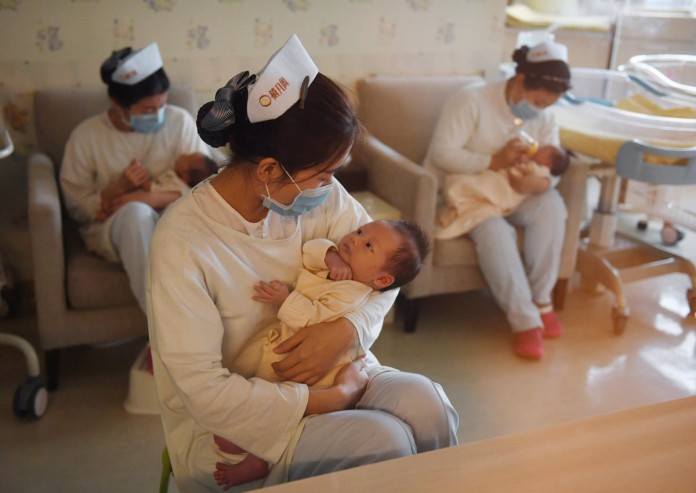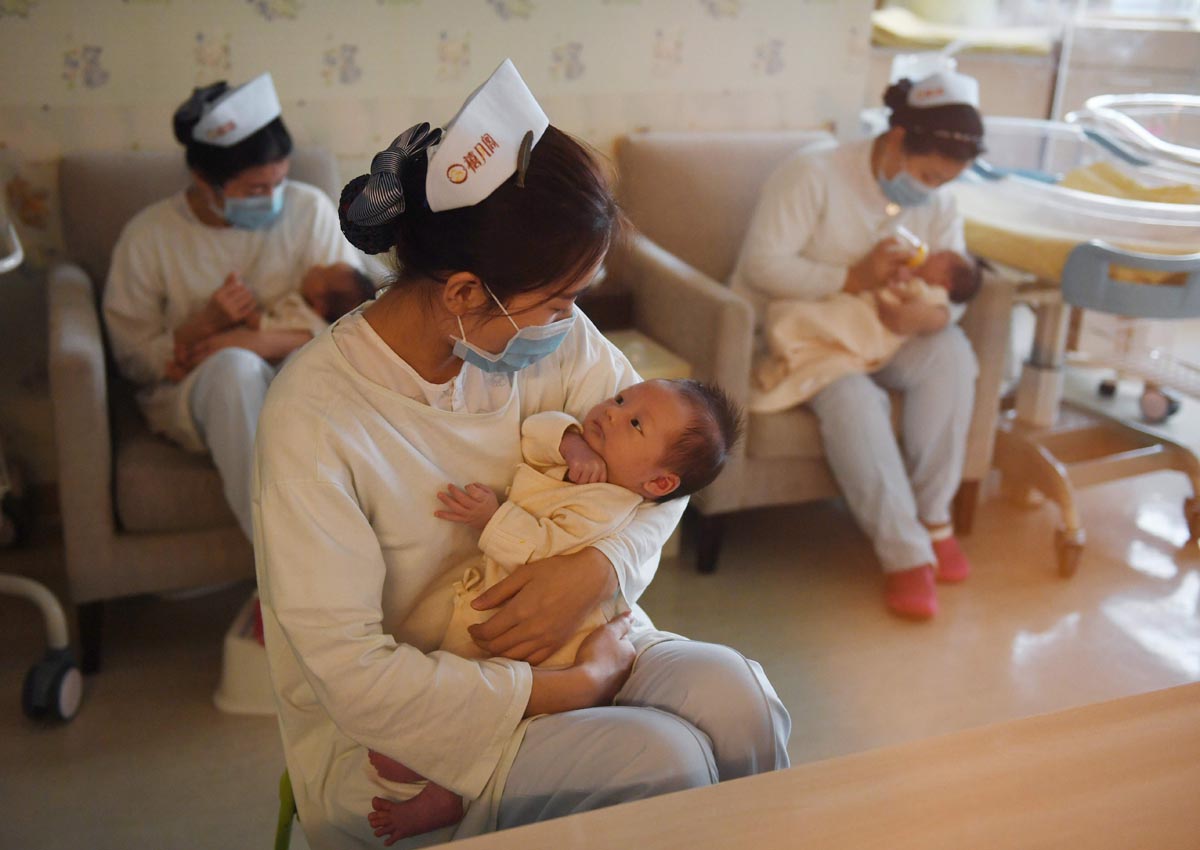
Beijing –
A year ago, China abandoned the one-child policy, Zheng Xiaoyu and her husband began to fight for their nine-year-old son siblings.
Their efforts with one other boy – one million extra births this year – have produced results.
“Traditional Chinese thought is that more children bring more blessings,” Zheng said, recovering from the birth of a luxury sanatorium in Beijing.
Over the years, the couple dreamed of a second child, letting their company in their twilight years.
“My husband and I are not the only children in our family, we grew up in sibling companies,” she said.
“Before we change, we question why we can not have a second child and why they have to limit the desires of everyone’s children since the late 1970s, the world’s most populous nation has taken stringent measures to bring the majority of couples Confined to a child, a fine for offenders, and even forced abortions.
Zheng and her husband are employees of state-owned enterprises, and if they violate the ban, they lose their jobs.
Officials say it is a key contributor to China’s economic boom.
But concerns over population aging, gender imbalances and labor shrinking prompted authorities to put an end to the restrictions, allowing all couples to start their second child on January 1.
Wang Pei’an, deputy director of the National Health and Family Planning Commission, said China is experiencing small baby boomers, with 1 million newborns expected this year.
He expects 17.5 million newborns in 2016, he said in a meeting in November, which will reverse last year’s downward trend, the highest number since 2000.
However, although the end of the one-child policy had affected Zheng’s husband, it was unclear how much it contributed to this year’s baby boom.
Previous statistics show that the rally is concentrated in the first half, before the new policy may have an impact. While the year 2016 is the monkey’s lunar year – is considered a special auspicious sign, born in the next.
In pajamas and slippers, Zheng was restored in Beijing’s Gated Ocean Center or “Lucky Moon Home”, where Porsche and Lexus cars parked in the parking lot.
It is a modern 2000 post-natal confinement or “zuoyezi” practice – literally “confinement” – new mothers stay in bed and keep warm and avoid certain foods.
Traditionally, they do not exercise, expose themselves to any form of draft, or take a bath.
There is no evidence of traditional claims that this practice will prevent diseases such as arthritis in the later stages of life.
But the 75-room Xiyuege Center offers nurses, managers and promotional materials that are described as “scientific” accompanying restrictions: spa facilities where women can lie on a heated bed of jade, consuming six specially calibrated meals per day to promote breast milk Produce at the same time take off pounds, and enjoy all-weather professional care.
These institutions have in recent years turned habits into a lucrative industry and are now developing further.
According to China’s industrial information website, there are more than 760 such centers, two years ago, about 4.2 billion yuan (about 605 million US dollars). It is expected that by 2019, the industry’s turnover will double to 11 billion yuan.
Xiyuege Center has seen customers recover from the second pregnancy more than twice this year, estimates Zheng Hui, nursing mother of the baby care, their accommodation to pay more than 1,000 US dollars per day.
The oldest woman she cared for was a 44-year-old whose first child was already in college.
Plans to open a third branch in the capital, marketing manager Hou Yan Ran said: “Obviously this year, a substantial increase in demand, customer reservations in advance.
She said the women called to reserve a place after their pregnancy a month later.
The long-term effects of the new family planning rules remain unclear.
Officials predicted that after the 2013 change, the number of births increased dramatically, as long as one parent had no siblings, allowing the couple to become the second child. But it did not materialize.
“Global Times” this month, cited family planning policy expert Yuan Xin believes that the current relaxation of the upward trend in 2013, only in the next few years, two-child policy will increase.
However, according to the All-China Women’s Federation of 10,000 children under the age of 15 household surveys, about 53% of singleton families do not have a second wish.
Zheng is 38 years old and says many of her friends are very curious about her pregnancy and ask endless questions to decide whether it is worthwhile to have another child at their age risk.
“For economic reasons, most people do not want to have a lot of kids,” she said.
“They are very hesitant, from the perspective of ordinary citizens, I think it will be better





